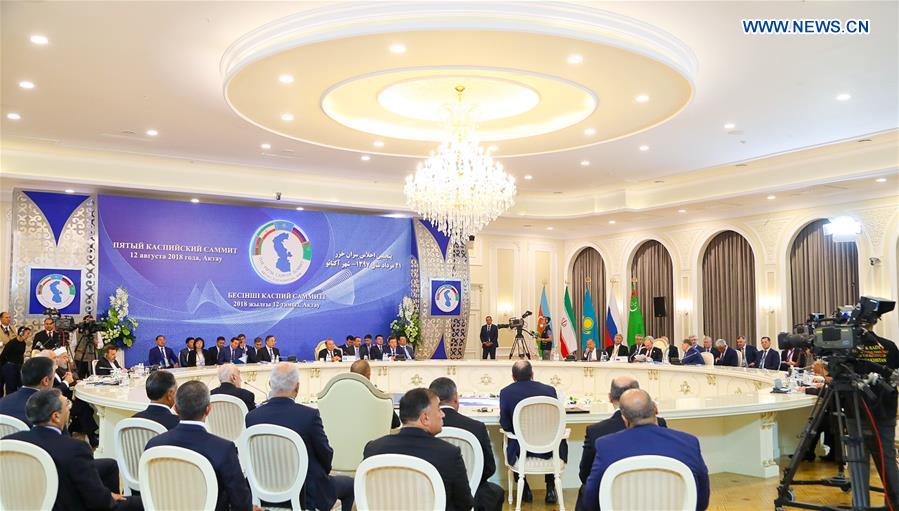Caspian Sea countries sign landmark deal, diffuse tension


The draft agreement, briefly made public on a Russian government portal in June, refers to the Caspian as a sea but the provisions give it "a special legal status", Russian Deputy Foreign Minister Grigory Karasin told Kommersant daily.
It is the Caspian's vast hydrocarbon reserves-estimated at around 50 billion barrels of oil and just under 8.4 trillion cubic meters of natural gas in proved and probable reserves-that have made a deal both vital and complex to achieve.
"Disputes arose when the Caspian was a frontier oil province," said John Roberts, of the Atlantic Council's Eurasia Center, while it is "now well established, with major fields approaching peak ... production".
Any deal will "expand the field for multilateral cooperation" between the five states, said Ilham Shaban, who heads the Caspian Barrel think tank.
Beyond military and economic questions, the agreement also offers hope for the Caspian's ecological diversity.
Reportedly depleted stocks of the beluga sturgeon, whose eggs are prized as caviar, may now grow thanks to "a clear common regime for the waters of the Central Caspian," Roberts said.
































